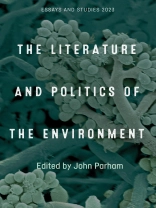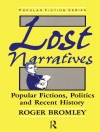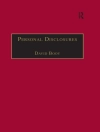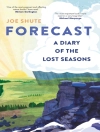Essays exploring interrelated strands of material ecologies, past and present British politics, and the act of writing, through a rich variety of case studies.
Much as the complexities of climate change and the Anthropocene have queried the limits and exclusions of literary representation, so, too, have the challenges recently presented by climate activism and intersectional environmentalism, animal rights, and even the power of material forms, such as oil, plastic, and heavy metals. Social and protest movements have revived the question of whether there can be such a thing as an activist ecocriticism: can such an approach only concern itself with consciousness, or might it politicise literary criticism in a new way?
Attempting to respond, this volume coalesces around three interrelated strands: material ecologies, past and present British politics, and the act of writing itself. Contributors consider the ways in which literary form has foregrounded the complexities of both matter (in essays on water, sugar, and land) and political economics (from empire and nationalism to environmental justice movements and local and regional communities). The volume asks how life writing, nature writing, creative nonfiction, and autobiography – although genres entrenched in capitalist political realities – can also confront these by reinserting personal experience. Can we bring a more sustainable planet into being by focusing on those literary forms which have the ability to imagine the conditions and systems needed to do so?
Inhaltsverzeichnis
Introduction –
John Parham
1.Industry and Environmental Violence in the Early Victorian Novel: Pastoral Re-visions –
Mark Frost
2.Floating Cities, Imperial Bodies: Reading Water in Timothy Mo’s An Insular Possession (1986) and Xi Xi’s ‚Strange Tales from a Floating City‘ (1986) –
Caitlin Vandertop
3.Sweet Food to Sweet Crude: Haunting Place through Planet
Sam Solnick
4.Nonhuman Entanglements in Adam Roberts’s Science Fiction: Bête (2014) and By Light Alone (2012) –
Nora Castle
5.Sum deorc wyrd gathers: Dark Ecology, Brexit Ecocriticism, and the Far Right –
Aidan Tynan
6.Literature, Literary Pedagogy, and Extinction Rebellion (XR): The Case of Tarka the Otter –
Karín Lesnik-Oberstein
7.The View from the Field: Activist Ecocriticism and Land Workers‘ Voices –
Pippa Marland
8.Nature Walking: Marching Against Privilege – Dominic Head
9.To Be a Witness in the World –
Amanda Thomson
Index
Über den Autor
JOHN PARHAM is Professor of Environmental Humanities at the University of Worcester. He has written six books, most recently the Cambridge Companion to Literature and the Anthropocene. He co-edited Green Letters: Studies in Ecocriticism for twenty years and writes mainly on Victorian literature and ecology, ecomedia, and contemporary environmental fiction.












